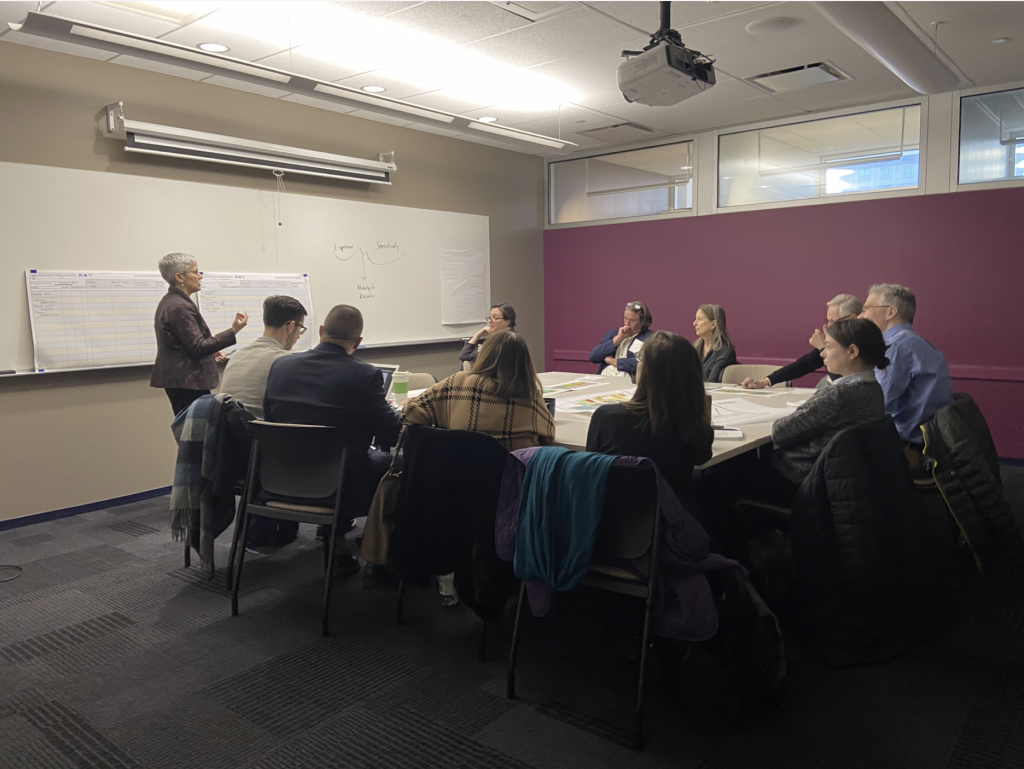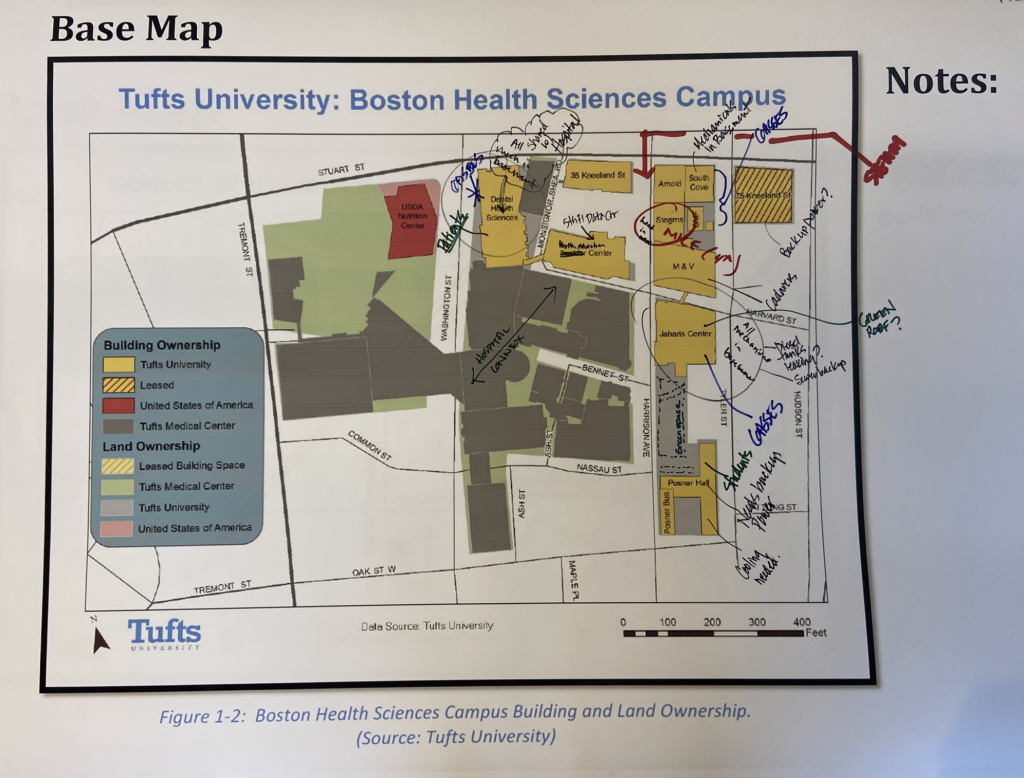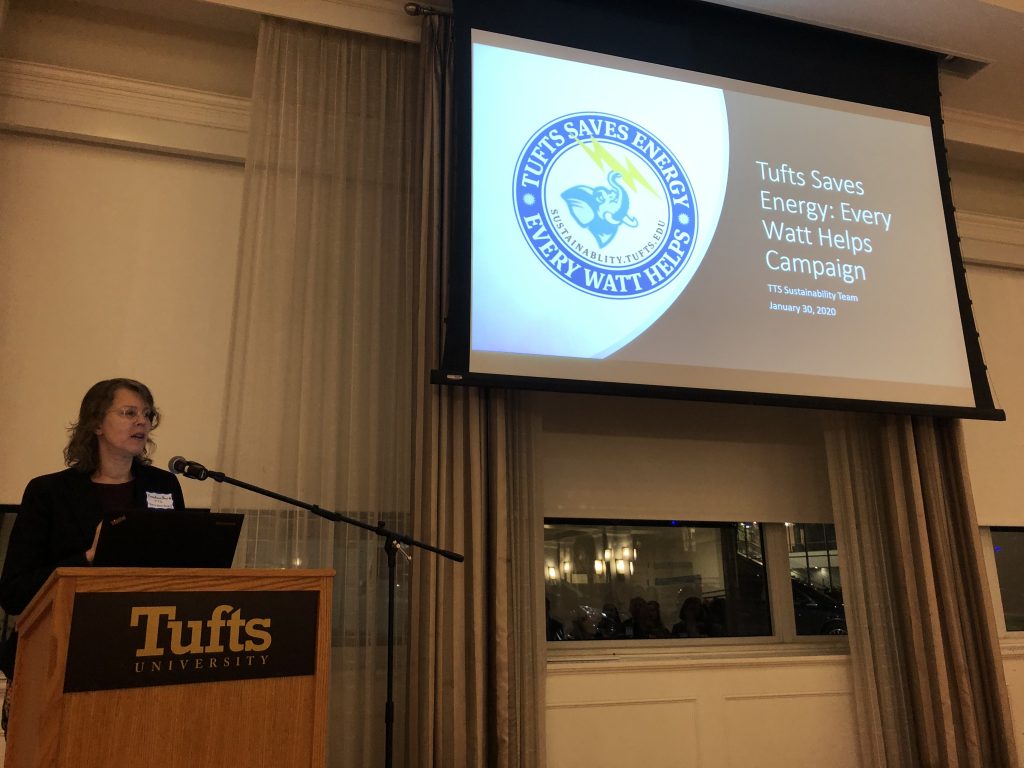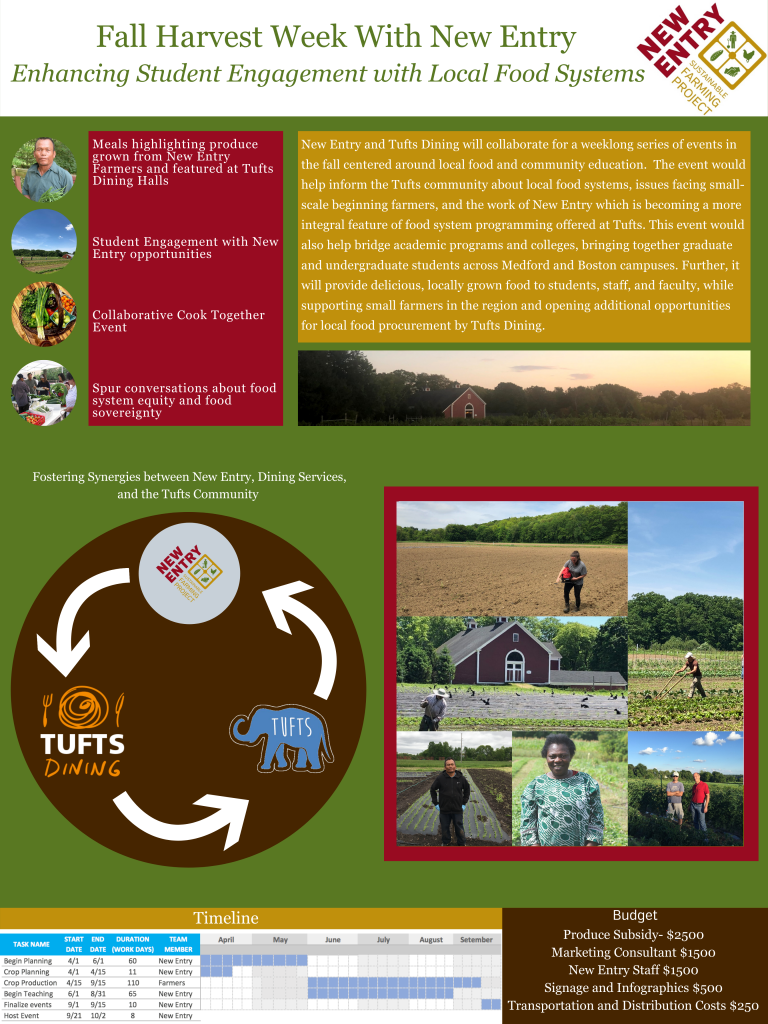By Hanna Carr
In 2016, Tufts University’s president Anthony Monaco signed the Second Nature Climate Commitment, which commited the University to act to both mitigate and adapt to climate change. Aside from pledging Tufts to be carbon neutral by 2050, the Commitment includes a stipulation that Tufts lead and complete a “campus-community resilience assessment.” While it is important to reduce emissions in order to mitigate climate change and prevent its worst impacts, it is vital that institutions such as Tufts also develop a plan to adapt to the effects that are already present and are likely to be felt in the near future. These impacts include more frequent and severe hurricanes and nor’easters, higher temperatures, flooding due to sea level rise and precipitation, and an increase in the occurrence of infectious disease, among others.
As a first step in this resilience assessment, Tufts held a Medford/Somerville campus Community Resilience Building (CRB) workshop in May 2018, which helped identify the infrastructural, societal, and environmental strengths and weaknesses of the Medford/Somerville campus, as well as opportunities to strengthen its capacity for resilience. Some top priorities for actions that were identified at that workshop were human welfare (supporting students and employees during an emergency), infrastructure (utilities, stormwater, and continuity planning and upgrades), and food (food supply, distribution, and storage during an emergency). Read more about the Medford/Somerville Community Resilience Building workshop here.
On January 31st, 2020, around 50 participants convened on the Tufts Health Sciences campus to engage in a Boston Campus CRB workshop. There was a diverse group of participants, coming from across Tufts; including Facilities, Sustainability, Capital Programs, Human Resources, Tufts Technology Services, the Friedman School, the Medical School, the Dental School, the SMFA, Tufts Medical Center, HNRCA, Tufts Shared Services, and more. Representatives from Climate Ready Boston, the City of Boston Office of Emergency Management,the Commonwealth of MA Executive Office of Energy and Environmental Affairs, and the Boston Public Health Commission were also in attendance.

The Core Team that helped organize and lead this workshop included Tina Woolston and Hanna Carr from the Tufts Office of Sustainability, Rich Perito from the Tufts Office of Emergency Management, and Adam Whelchel from the Nature Conservancy, who is the creator of the Community Resilience Building workshop model.
The full-day workshop began with a presentation introducing the participants to the topic of climate resilience and preparing them for the rest of the day’s events. Tufts’ Executive Vice President, Mike Howard, kicked off the workshop by delivering a few words about the importance of accounting for the impacts of climate change in planning for Tufts’ long term success. Rich Perito presented on Tufts’ hazard identification process, and Peyton Jones from Climate Ready Boston spoke about Boston’s approach to climate resilience. Adam Whelchel and Hanna Carr introduced the workshop purpose, structure, and resources, including maps showing the extent of flooding and hurricane inundation on the Health Sciences and SMFA campuses.

The participants were then broken up into four small workshop groups, facilitated by experienced volunteers from The Nature Conservancy, Second Nature, and the Mystic River Watershed Association. In these groups, participants labeled maps of the Health Sciences and SMFA campuses and identified features of the campuses that may present strengths and vulnerabilities in the face of four climate-change-related hazards: hurricanes and nor’easters, flooding, extreme temperatures, and infectious disease. The participants also brainstormed actions that Tufts could take to mitigate the vulnerabilities and build on the strengths. After lunch, the participants shared out their respective groups’ top 3 action items. Post-workshop, the Tufts Offices of Sustainability and Emergency Management will work to develop a report based on the findings of the workshop and follow up with the relevant individuals to execute the top action items.
Some common themes among action items for the Boston campus included building a cogeneration plant to increase Tufts’ energy independence; strengthening communication channels among the Tufts community and between Tufts and the City of Boston; working with public transportation entities to support improved public transportation; and coordinating with local communities such as the Chinatown and Fenway neighborhoods to create a people-centered approach to hazard mitigation and resilience.

Community-based actions towards adapting to the predicted impacts of climate change, such as the CRB workshop model, encourage people-centric planning that meets the specific needs of the community, and its local landscape and infrastructure. In addition, it empowers community members to advocate for and actualize projects to mitigate the severity of the impacts of climate change and improve their community’s ability to withstand a climate change-driven emergency situation. This workshop will help Tufts incorporate climate resilience into its long term capital planning.




Find Us On Social Media!